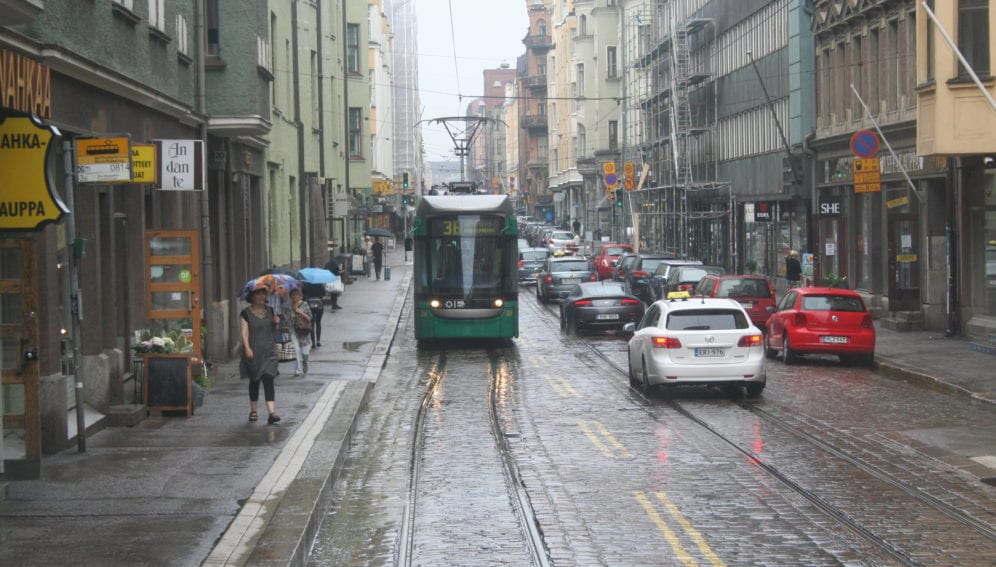By: Joel D. Adriano and Kaz Janowski
Send to a friend
The details you provide on this page will not be used to send unsolicited email, and will not be sold to a 3rd party. See privacy policy.
Many participants from Asia and Africa felt that developing countries were under-represented at WCSJ 2013.
South-East Asia in particular was barely represented, with very few participants — roughly ten, according to the official list of 1,000 participants or so that were expected to attend. Even more telling was the lack of speakers and panellists from the region — just two, both from Malaysia.
As a result, the topics and examples discussed did not really relate to the experiences and actual situations in many developing countries. One participant from Africa complained that they were talking about cancer and other diseases that hardly draw attention in the developing world. In Africa, he says, we are still concerned with cholera and malaria. Another delegate said that he would prefer to hear more about tuberculosis.
One implication of this, as far as SciDev.Net is concerned, was lower coverage than usual from the conference. From my point of view, in the majority of sessions, it was very difficult to find a twist or angle appropriate to the developing world. Some of the sessions offered hardly any insights relevant to South-East Asia.
For example, one intern said that they found it rather difficult to apply lessons from the session 'The role of the press in exposing scientific and medical fraud' to Vietnamese medical journalism as the political and social structure of Vietnam is totally different to that in the countries mentioned in the session. In many countries in South-East Asia, government still maintains strict control on the media, he said.
Hopefully, the organisers of WCSJ 2015 will improve the balance of participants and topics from both the developed and developing world.
Joel D. Adriano, South-East and Pacific regional coordinator
All change in Helsinki
For me, the only drawback of WCSJ 2013 was mild insomnia owing to Finland's famous midnight sun — exacerbated by a tropical storm of ideas and impressions whirling around in my head after the week's sessions.
The final day of the conference was no exception to this. The key theme here was 'change'. We started the day with two engaging plenaries on climate change after which we were treated to a Cold War tram excursion around the city centre, which outlined political change in the region. The tram journey, beautifully dramatised by the Ylioppilasteatteri (the student theatre) was part of a cluster of theatrical experiences during the week. We were also treated to a fascinating sketch about type 2 diabetes and were thrilled by 'Cool Fire', a science show, after our final dinner at Heureka, the Finnish Science Centre. Finally, there was the announcement at the day's closing plenary session of presidential change at the WFSJ — the World Federation of Science Journalists.
“Remember that we as science journalists are here to serve our audiences — but above all, don't be afraid to celebrate.”
Connie St Louis
As the current incumbent, Finland's Vesa Niinikangas, stepped down, he handed the new leadership role to Chul Joong Kim from South Korea. News that South Korea were to host the 9th WCSJ in 2015 spread like wildfire among conference delegates earlier in the week, but many doubted its veracity, feeling certain that South Africa would be given the honour. But now it was official that South Korea had won the bid and, as if to dispel any doubts, Niinikangas sounded a reindeer bell on the conference stage as a symbolic gesture of Finland's favourite animal speeding from Helsinki across Siberia to Seoul.
I sensed a certain lightness in his step and could almost hear the sigh of relief as the heavy burden of responsibility was lifted from his shoulders.
But to get back to the morning’s plenary talk — the speaker, Janne Hukkinen, discussed the power of primary metaphors in shaping our representation of the world. He called on science journalists to be aware of these metaphors and to be aware of the need to understand the emotional and intuitive content of scientific thought. He suggested that a useful way of thinking about global development is to talk about a roller-coaster effect rather than a continuous rise in growth. I, for one, will try to follow his advice.
A final message from Connie St Louis, from the United Kingdom, called for a change of attitude within science journalism — be excellent, she said, be critical, be original. Remember that we as science journalists are here to serve our audiences — but above all, don't be afraid to celebrate. Fine words for an excellent week's conference.
Kaz Janowski, editor














